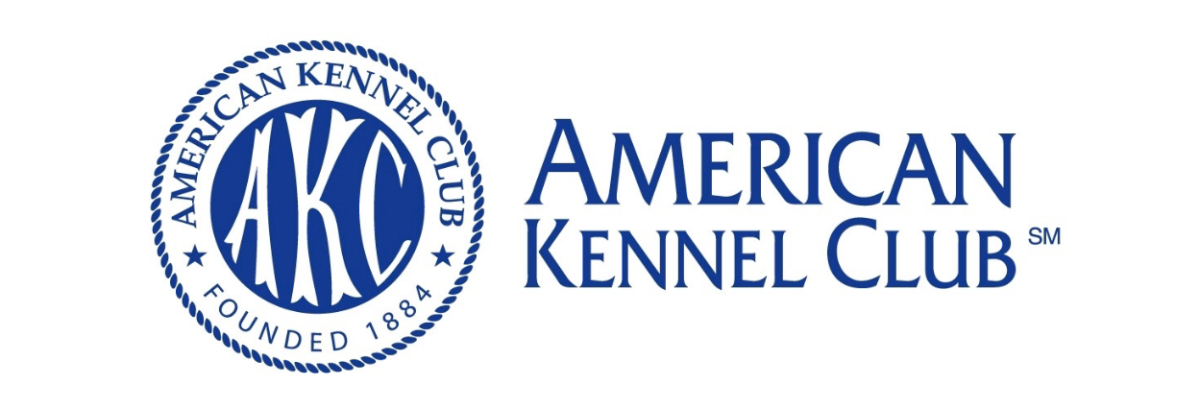The American Kennel Club (A.K.C.) is one of the oldest and most well-known kennel clubs in the United States. Founded in 1884, the A.K.C. currently recognizes over 165 breeds and registers over 1.5 million dogs each year. The A.K.C. is the largest purebred dog registry in the world and is also the largest not-for-profit organization dedicated to the sport of purebred dogs in the United States.
Each breed has its own unique characteristics, personality, and physical traits. Many of these dog breeds have been developed over centuries to serve specific purposes, such as hunting, herding, and guarding. The A.K.C. plays an essential role in maintaining the integrity of each breed’s unique characteristics and promoting responsible breeding practices.
There are several benefits of having your dog A.K.C. registered:
- Recognition and prestige: A.K.C. registration signifies that your dog is a purebred of one of the 195 breeds recognized by the A.K.C., and that it meets the breed standard set by the A.K.C. This can add value to your dog and enhance its prestige.
- Access to A.K.C. events and competitions: A.K.C. registration allows your dog to participate in AKC-sanctioned events and competitions such as conformation shows, obedience trials, agility trials, and other events.
- Genetic traceability: A.K.C. registration provides a record of your dog’s pedigree and allows for the tracing of your dog’s genetic lineage. This information can be important for breeders to make informed breeding decisions and for owners to understand their dog’s potential health issues.
- Identification: A.K.C. registration includes a microchip I.D. for your dog, which can help to identify it if it gets lost or stolen.
- A.K.C. Community: A.K.C. registration allows you to become part of the A.K.C. community, which includes access to A.K.C. resources such as training and breeding information and the opportunity to connect with other dog enthusiasts.
- A.K.C. also offers different programs that help owners to train and certify their dogs in various fields, like therapy dogs, Service dogs, and more.
- A.K.C. also offers insurance plans and benefits for registered dogs, which can help to cover veterinary costs and other expenses associated with dog ownership.
It’s worth noting that while A.K.C. registration is a valuable tool for breeders and dog enthusiasts, it’s not a guarantee of quality, health, or temperament. It’s always important to research a breed and obtain a health check from a veterinarian before buying or breeding a dog.
The American Kennel Club (A.K.C.) offers a variety of events and competitions for purebred dogs that are registered with the A.K.C. These events are designed to showcase the unique characteristics and abilities of each breed, as well as to promote responsible breeding and dog ownership.
- Conformation shows: Also known as “breed shows,” these events are designed to evaluate a dog’s physical characteristics, such as its conformation, movement, and overall appearance, against the breed standard established by the A.K.C. Dogs, are judged by a panel of AKC-approved judges, who will select the dog that best exemplifies the breed standard.
- Obedience trials: These events test a dog’s ability to follow commands and perform specific tasks, such as sitting, staying, and coming when called. Dogs are judged on their precision, accuracy, and overall demeanor.
- Agility trials: These events test a dog’s speed, agility, and endurance as they navigate a course that includes obstacles such as jumps, tunnels, and weave poles. Dogs are judged on their speed, accuracy, and overall performance.
- Field trials: These events are designed for hunting breeds and test a dog’s ability to locate and retrieve game in a natural setting. Dogs are judged on their hunting skills, such as their ability to locate the game and retrieve it to the handler.
- Tracking trials: These events test a dog’s ability to locate and follow a specific scent. Dogs are judged on their ability to locate and follow a scent trail and indicate a specific object’s location.
- Herding trials: These events are designed for herding breeds and test a dog’s ability to control and move livestock. Dogs are judged on their ability to control and move livestock in a specific pattern.
- Coonhound events: These events are designed for breeds that are used for hunting raccoons and testing a dog’s ability to locate tree and bay raccoons.
- Lure coursing: These events are designed for sighthounds and test a dog’s ability to chase a mechanical lure over a predetermined course.
To participate in these events, dogs must be registered with the A.K.C. and have an A.K.C. number, and owners must be A.K.C. members and have their dog’s registration certificate. The events are held throughout the year and are open to all breeds recognized by the A.K.C. Each event has its own set of rules and regulations, and it’s essential to review them before participating.
Different Levels of A.K.C. Competitions
Yes, there are different levels of A.K.C. competitions for dogs that are registered with the A.K.C. These levels are designed to cater to dogs at various stages of training and development.
- Companion events: These events are designed for pet dogs and include events such as A.K.C. Canine Good Citizen, A.K.C. Community Canine, and A.K.C. S.T.A.R. Puppy. These events test basic obedience and manners and serve as a stepping stone to more advanced competitions.
- Performance events: These events are designed for dogs that have achieved a basic level of training and include events such as A.K.C. obedience, A.K.C. agility, and A.K.C. tracking. These events test a dog’s ability to follow commands and perform specific tasks.
- Field events: These events are designed for hunting breeds and include events such as A.K.C. field trials and A.K.C. hunting tests. These events test a dog’s ability to locate and retrieve game in a natural setting.
- Herding events: These events are designed for herding breeds and include events such as A.K.C. herding trials and A.K.C. herding tests. These events test a dog’s ability to control and move livestock.
- Coonhound events: These events are designed for breeds that are used for hunting raccoons and testing a dog’s ability to locate tree and bay raccoons.
- Lure coursing events: These events are designed for sighthounds and test a dog’s ability to chase a mechanical lure over a predetermined course.
The A.K.C. also offers different titles and certifications for dogs that participate in these events, such as Companion Dog (CD), Companion Dog Excellent (CDX), and Utility Dog (U.D.). These titles and certifications serve as a measure of a dog’s training and performance in these events.
It’s important to note that participation in A.K.C. events and competitions is optional, and not all dogs need to participate in them. Many dogs are registered with the A.K.C. simply to have a record of their pedigree and to be part of the A.K.C. community.
Dog Breeds that can be registered with the (A.K.C.) American Kennel Club
- Affenpinscher
- Afghan Hound
- Airedale Terrier
- Akita
- Alaskan Malamute
- American English Coonhound
- American Eskimo Dog
- American Foxhound
- American Hairless Terrier
- American Staffordshire Terrier
- American Water Spaniel
- Anatolian Shepherd Dog
- Australian Cattle Dog
- Australian Shepherd
- Australian Terrier
- Basenji
- Basset Hound
- Beagle
- Bearded Collie
- Beauceron
- Bedlington Terrier
- Belgian Malinois
- Belgian Sheepdog
- Belgian Tervuren
- Bernese Mountain Dog
- Bichon Frise
- Black and Tan Coonhound
- Black Russian Terrier
- Bloodhound
- Bluetick Coonhound
- Border Collie
- Border Terrier
- Borzoi
- Boston Terrier
- Bouvier des Flandres
- Boxer
- Boykin Spaniel
- Bracco Italiano
- Briard
- Brittany
- Bull Terrier
- Bulldog
- Bullmastiff
- Cairn Terrier
- Canaan Dog
- Cardigan Welsh Corgi
- Cavalier King Charles Spaniel
- Cesky Terrier
- Chesapeake Bay Retriever
- Chihuahua
- Chinese Crested
- Chinese Shar-Pei
- Chinook
- Chow Chow
- Clumber Spaniel
- Cockapoo
- Cocker Spaniel
- Collie
- Coton de Tulear
- Curly-Coated Retriever
- Dachshund
- Dalmatian
- Dandie Dinmont Terrier
- Doberman Pinscher
- Dogue de Bordeaux
- English Cocker Spaniel
- English Foxhound
- English Setter
- English Springer Spaniel
- English Toy Spaniel
- Entlebucher Mountain Dog
- Field Spaniel
- Finnish Lapphund
- Finnish Spitz
- Flat-Coated Retriever
- French Bulldog
- German Pinscher
- German Shepherd Dog
- German Shorthaired Pointer
- German Wirehaired Pointer
- Giant Schnauzer
- Glen of Imaal Terrier
- Golden Retriever
- Goldendoodle
- Gordon Setter
- Great Dane
- Great Pyrenees
- Greater Swiss Mountain Dog
- Greyhound
- Harrier
- Havanese
- Ibizan Hound
- Icelandic Sheepdog
- Indian Pariah Dog
- Irish Setter
- Irish Terrier
- Irish Water Spaniel
- Irish Wolfhound
- Italian Greyhound
- Jack Russell Terrier
- Japanese Chin
- Keeshond
- Kerry Blue Terrier
- Komondor
- Kuvasz
- Labrador Retriever
- Lakeland Terrier
- Lhasa Apso
- Lowchen
- Maltese
- Manchester Terrier
- Maremma Sheepdog
- Miniature American Shepherd
- Miniature Bull Terrier
- Miniature Pinscher
- Miniature Schnauzer
- Neapolitan Mastiff
- Newfoundland
- Norfolk Terrier
- Norwegian Buhund
- Norwegian Elkhound
- Norwegian Lundehund
- Norwich Terrier
- Old English Sheepdog
- Papillon
- Pekingese
- Pomeranian
- Poodle
- Portuguese Water Dog
- Pug
- Puggle
- Pyrenean Mountain Dog
- Rat Terrier
- Redbone Coonhound
- Rhodesian Ridgeback
- Rottweiler
- Saint Bernard
- Saluki
- Samoyed
- Schipperke
- Scottish Terrier
- Shar Pei
- Shetland Sheepdog
- Shih Tzu
- Siberian Husky
- Smooth Fox Terrier
- Soft Coated Wheaten Terrier
- Staffordshire Bull Terrier
- Standard Schnauzer
- Standard Poodle
- Sussex Spaniel
- Swedish Vallhund
- Tibetan Mastiff
- Tibetan Spaniel
- Tibetan Terrier
- Toy Fox Terrier
- Toy Poodle
- Vizsla
- Weimaraner
- Welsh Springer Spaniel
- Welsh Terrier
- West Highland White Terrier
- Whippet
- Wire Fox Terrier
- Wirehaired Pointing Griffon
- Xoloitzcuintli
- Yorkshire Terrier

